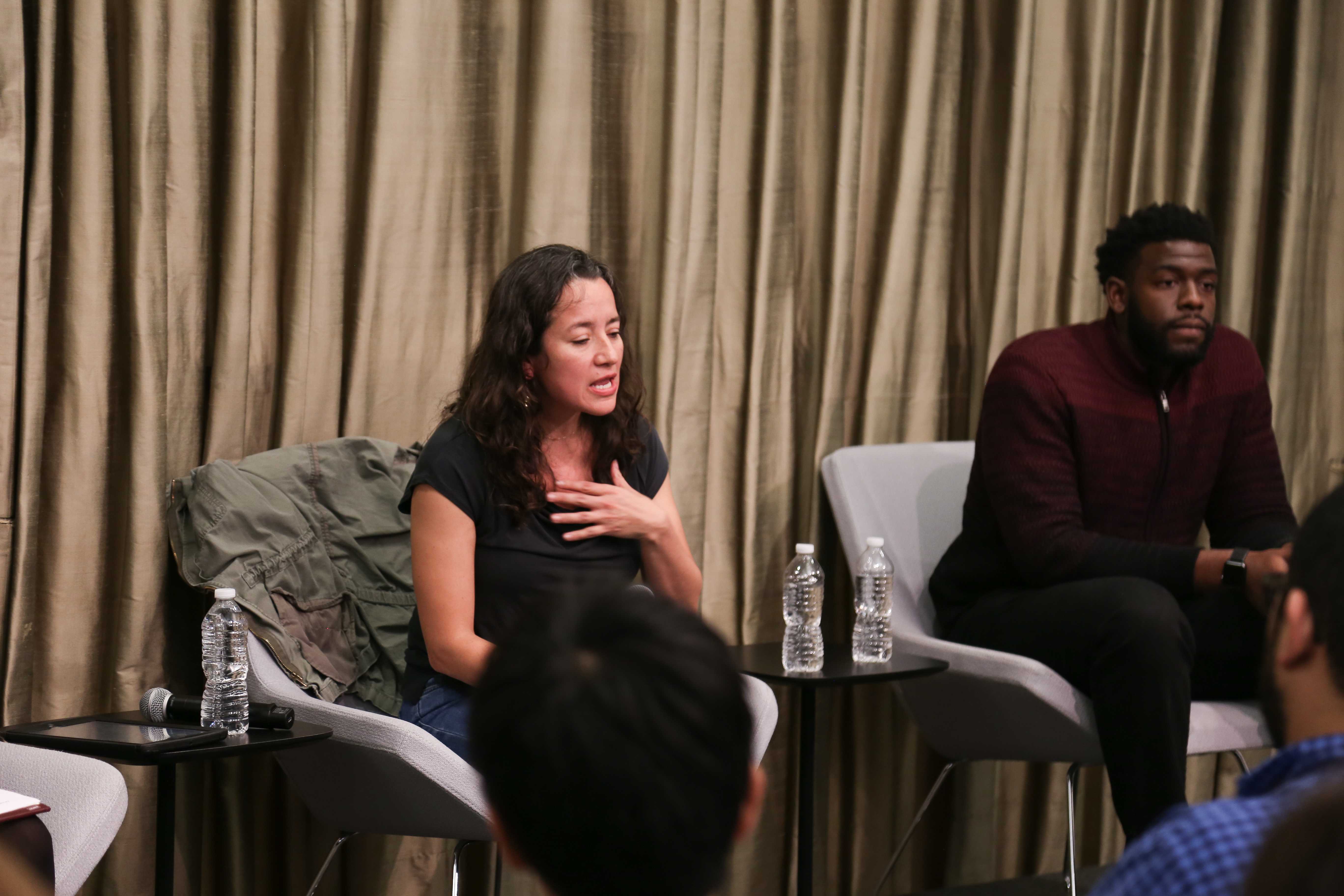NYU hosted Ana Maria Archilla and Darius Khalil Gordon, orchestrators of the emotional moment in an elevator that led to an additional FBI investigation into Supreme Court Justice Brett Kavanaugh, Monday night at the Wagner School of Public Policy.
The viral elevator moment was powerful enough to convince Arizona Senator Jeff Flake to support reopening the FBI investigation into Kavanaugh’s past — effectively delaying the confirmation vote by a week — but the heroic confrontation was not a split-second decision. It took years of hard work and political activism to create the opportunity for such a moment.
“That was a moment, a moment that happened to be known by many people because there were cameras there,” Archilla said about her confrontation with Flake.
As the co-executive director of the Center for Popular Democracy, Archilla actively organizes and encourages an activist tactic of “bird-dogging,” which entails direct confrontation and question of politicians.
“[Bird-dogging] is not asking nicely for a meeting, but just showing up and saying, ‘I am here right now, and I am going to tell you this story right now, you’re going to listen to me,” Archilla said.
Since the 2016 presidential election, Archilla, Gordon and many other activists have used his strategy to fight for values they believe in. Following Kavanaugh’s nomination and leading up to Christine Blasey Ford’s testimony, their activism increased.
“I think that’s kind of where the moment started … when Trump got elected,” said Gordon, who helped organize the confrontation behind the scenes. “We were occupying the Senate for 33 days straight, which was a tremendous feat in itself. These were folks who were just angry and frustrated and wanted to be involved and didn’t know which way to go.”
While the activists prepared extensively to create such an opportunity, part of their success can be attributed to circumstantial luck. Archilla and Maria Gallagher, the other woman who confronted Flake in the elevator, had come to the atrium of the building the previous Monday to protest. Although they intended on confronting Flake outside his office, they jumped on the opportunity to speak with him in the elevator.
“It was a moment of great improvisation and contagious courage flowing through the air that I said words that I’ve never said in public … and then watched as other women did the same,” Archilla said.
Despite Kavanaugh’s confirmation a week later, Archilla and Gordon have not lost hope in the merits of activism. She and Gordon believe galvanizing of the public around the issue get the ball rolling, bringing together activists from various backgrounds and who hold various values.
“Sometimes, in moments like this, we don’t realize there were women there who were survivors, there were women there because of reproductive rights, there [were] a variety of groups that maybe shared one value or two values that maybe would not have otherwise been allied,” said Patricia Satterstrom, Wagner assistant professor and the the moderator of the panel with Archilla and Gordon.
Members of the panel felt that Donald Trump’s presidency has brought several groups together to fight in defense of shared values.
“What we did was weave this fabric that that allowed all of us to share the burden of the pain to some extent and create a kind of mirror for the country to see itself,” Archilla said.
Both speakers additionally believe citizens have a strong role to play in the future of activism and U.S. politics, despite the results of the upcoming midterm elections.
“Whatever happens on election day, we have to be ready for what happens the day after,” Archilla said in an interview with WSN.
Email Elena Fox at [email protected].


























































































































































